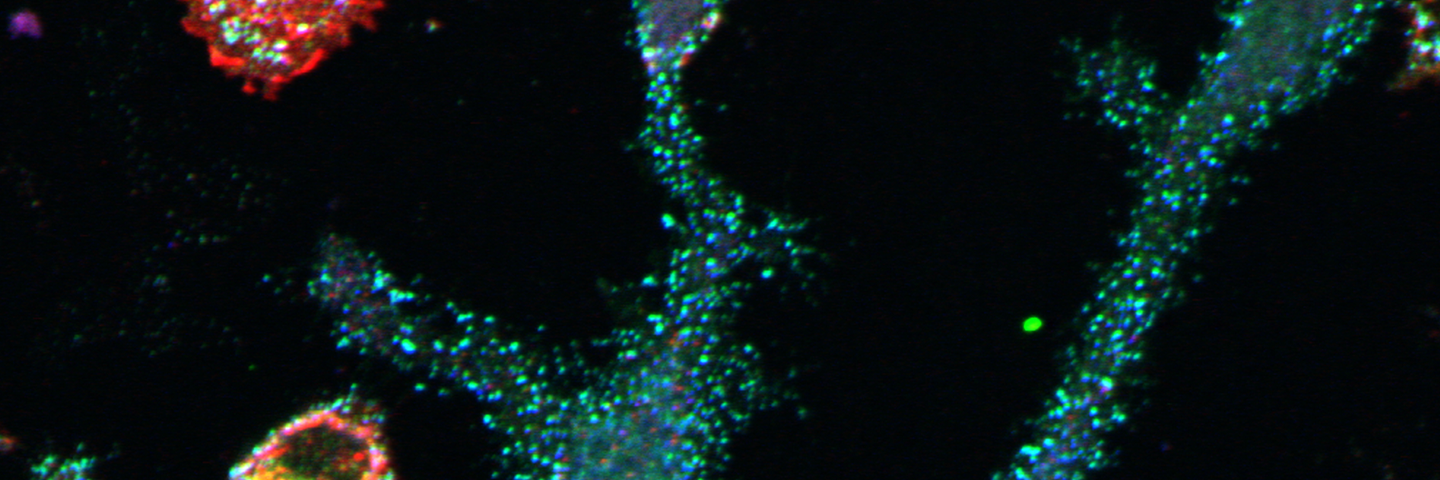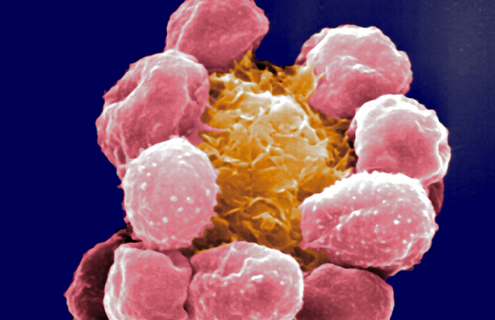
Immune System Disorders
Disorders of the immune system are generally characterized by an inappropriate upregulation or downregulation of cellular immune components such as neutrophils, lymphocytes, monocytes, eosinophils, and basophils.
In examples of immune system overactivity, the body attacks its own tissues such as skin (psoriasis), colon (irritable bowel syndrome), pancreas (Type 1 diabetes), and joints (rheumatoid arthritis), resulting in pain and impaired function. By contrast, immune deficiency diseases such as HIV, complement immunodeficiency disease, and hypogammaglobulinemia exhibit a decrease the body's ability to fight invaders, causing vulnerability to infection by bacteria, viruses, protozoa, and fungi.
In addition to its role in preventing and battling invasion by infectious agents, the immune system is critically involved in the surveillance and prevention of cancer. For example, cancer cells may express abnormal tumor antigens on the exterior of the plasma membrane, marking these cells as ‘non-self’. When cytotoxic T cells and natural killer (NK) cells encounter cells marked by those antigens, the immune effectors release cytokines (tumor necrosis factors) that initiate apoptosis in the tumor cell. Conversely, a cancer cell can evade the cell-mediated immune response by downregulating tumor antigens. Further, when the immune system has been compromised or inappropriately downregulated, surveillance for tumor antigens fails and results in cancer growth and metastasis.
Expand Your Cell-based Assays
Immunologists are challenged by the lack of a consistent source of cells with physiological relevance for their cell-based assays. Differentiated induced pluripotent stem cell (iPSC)-derived cells fulfill the need for a consistent source of cells and physiological relevance. This webinar provides data demonstrating how differentiated iPSC-derived cells can be incorporated into immunoassays.
Watch the Webinar
In vitro differentiation of macrophages and dendritic cells from primary human CD14+ monocytes application note
This study demonstrates the differentiation potential of cryopreserved primary human CD14+ monocytes towards macrophage and dendritic cell lineages for applications such as cancer immunology, vaccine development, inflammation, bone disease, immunosuppression, disease resolution, and tissue repair studies.
Download the AP NotePrimary Immune Cells
ATCC has the primary immune cells, including peripheral blood mononuclear cells (PBMCs), you need to design and test cell-based assays and treatments as part of your research and development. A typical vial of PBMCs includes progenitor populations such as CD14+ monocytes and lymphocytes such as cluster of differentiation (CD) 19+ B cells, CD4+ helper T cells, CD8+ cytotoxic T cells, and CD56+ natural killer (NK) cells.
Learn More